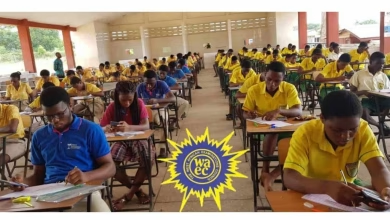How Can I Prepare for JSS3 Junior WAEC 2026?

Preparing for the Junior WAEC (Basic Education Certificate Examination – BECE) is a crucial milestone for every JSS3 student in Nigeria. Also known as the Junior WAEC, this examination marks the transition from junior to senior secondary school and lays the foundation for your academic future. Excelling in this exam requires a focused and strategic approach, as it tests your knowledge across various subjects.
This comprehensive guide answers the question: “How can I prepare for JSS3 Junior WAEC 2026?” It provides step-by-step strategies, tips, and resources to help students excel.
What Is the Junior WAEC (BECE)?
The Basic Education Certificate Examination (BECE), often referred to as the Junior WAEC, is a standardized exam conducted by the National Examinations Council (NECO) and other state examination bodies in Nigeria. It is taken by students in their final year of junior secondary school (JSS3).
Why Is Junior WAEC Important?
- It determines your readiness for senior secondary school.
- Your grades are used for placement into your preferred senior secondary school class (science, arts, or commercial streams).
- It builds confidence for future exams like the WAEC SSCE and NECO SSCE.
How Can I Prepare for JSS3 Junior WAEC 2026?
Below are the most effective steps to prepare for the Junior WAEC 2026:
Also Read : Check WAEC Results 2025 May/June Candidates: Complete Guide
1. Understand the Junior WAEC Syllabus
The first step in preparing for the Junior WAEC is to get the official syllabus. The syllabus outlines all the topics and subtopics you are expected to cover for each subject.
Where to Get the Syllabus:
- Check with your school for the official BECE syllabus.
- Visit the NECO website or your state’s Ministry of Education website for the syllabus.
Why the Syllabus Is Important:
- It ensures you focus only on relevant topics.
- It helps you track your progress by checking off completed topics.
2. Create a Study Timetable
A study timetable is essential for effective preparation. It helps you organize your study schedule and ensures you cover all subjects before the exam.
How to Create a Study Timetable:
- Allocate time to each subject based on your strengths and weaknesses.
- Include breaks to avoid burnout.
- Prioritize core subjects like Mathematics, English Language, Basic Science, and Social Studies.
- Set daily or weekly goals to motivate yourself.
3. Practice Past Questions
One of the best ways to prepare for Junior WAEC is by practicing past exam questions. This helps you familiarize yourself with the exam format and question types.
Benefits of Practicing Past Questions:
- You will understand the exam structure (e.g., multiple-choice, essay, and practical questions).
- It helps identify frequently asked questions.
- It improves your speed and accuracy.
Where to Find Past Questions:
- Your school might provide Junior WAEC past question booklets.
- Purchase past question books from bookstores.
- Online resources like Pass.ng offer interactive practice for BECE.
Recommended Article : 2025 WAEC GCE Registration Form: Complete Instructions Guidelines for Nigerian Students
4. Attend Extra Lessons or Tutorials
Extra lessons or tutorials can provide additional support in areas where you may be struggling. These sessions are often led by experienced teachers who can explain difficult concepts and guide you through the syllabus.
Where to Find Extra Lessons:
- Your school may offer after-school lessons.
- Enroll in private tutorials or online classes.
- Platforms like Ulesson and Khan Academy offer online lessons for various subjects.
5. Focus on Core Subjects
While it’s important to prepare for all subjects, pay special attention to the core subjects. These are mandatory and carry significant weight in your overall grade.
Core Subjects in Junior WAEC:
- Mathematics
- English Language
- Basic Science
- Social Studies
- Civic Education
Tips for Core Subjects:
- Use textbooks recommended by your school.
- Practice difficult topics repeatedly.
- Solve past questions related to each subject.
6. Master Time Management
Time management is crucial in both preparation and during the exam.
During Preparation:
- Divide your study time into manageable chunks (e.g., 1-2 hours per subject).
- Avoid procrastination by sticking to your timetable.
During the Exam:
- Read all instructions carefully.
- Allocate time to each question based on marks.
- Leave time to review your answers before submission.
7. Prepare for Practical Exams
Some Junior WAEC subjects, such as Basic Science and Agricultural Science, include a practical component. To excel in practical exams:
- Practice identifying specimens, tools, and equipment.
- Learn how to draw and label diagrams (e.g., parts of a flower, digestive system).
- Familiarize yourself with basic experiments and their procedures.
8. Use Recommended Textbooks and Resources
Using the right textbooks is essential for understanding topics in the syllabus. Here are some recommended resources:
Recommended Textbooks:
- Mathematics: “New General Mathematics for Junior Secondary Schools”
- English Language: “Common Entrance English Exam Practice”
- Basic Science: “Basic Science for Junior Secondary Schools” by STAN
- Social Studies: “Essential Social Studies for Junior Secondary Schools”
Online Resources:
- Ulesson
- Khan Academy
- Pass.ng
9. Take Mock Exams
Mock exams are an excellent way to simulate the actual Junior WAEC exam. They help you identify areas where you need improvement and build confidence.
How to Take Mock Exams:
- Your school may organize mock exams.
- Time yourself while solving past questions at home.
- Review your answers and correct mistakes.
10. Stay Healthy and Motivated
Good health and a positive mindset are essential for effective learning.
Tips for Staying Healthy:
- Eat balanced meals to keep your energy levels up.
- Get at least 7-8 hours of sleep every night.
- Take short breaks during study sessions to avoid fatigue.
Staying Motivated:
- Reward yourself for achieving study goals.
- Surround yourself with supportive friends and family.
- Visualize your success in the exam.
Also Read : How to Check NECO Result 2026 | NECO Portal
Frequently Asked Questions (FAQs)
1. When Will the JSS3 Junior WAEC 2026 Exam Start?
The exact date for the Junior WAEC 2026 exam will be announced by NECO or your state’s Ministry of Education. Generally, the exam takes place between April and June.
2. How Many Subjects Are in Junior WAEC?
Students typically take 8-10 subjects, including core subjects like Mathematics, English, Basic Science, and Social Studies, along with elective subjects.
3. Is Junior WAEC the Same as NECO BECE?
Yes, Junior WAEC is also called the NECO BECE. NECO conducts the exam for federal and unity schools, while state examination bodies handle it for state schools.
4. How Can I Pass My Junior WAEC With Distinction?
To pass with distinction:
- Study all topics in the syllabus.
- Practice past questions regularly.
- Focus on core subjects.
- Attend lessons and seek help for difficult topics.
5. Are Practical Questions Compulsory in Junior WAEC?
Yes, practical questions are part of the Junior WAEC for subjects like Basic Science and Agricultural Science. Ensure you prepare adequately for the practical exams.
6. Do Private Schools Write Junior WAEC?
Yes, students in private schools also take the Junior WAEC. Some private schools may conduct their own internal exams alongside the official BECE.
Final Thoughts
Preparing for the JSS3 Junior WAEC 2026 is achievable with the right strategies and dedication. By understanding the syllabus, practicing past questions, attending lessons, and managing your time effectively, you can excel in the exam.
Remember, preparation is key to success. Start early, stay consistent, and don’t hesitate to seek help when needed. With hard work and determination, you’ll achieve excellent results in your Junior WAEC 2026.
Good luck!




